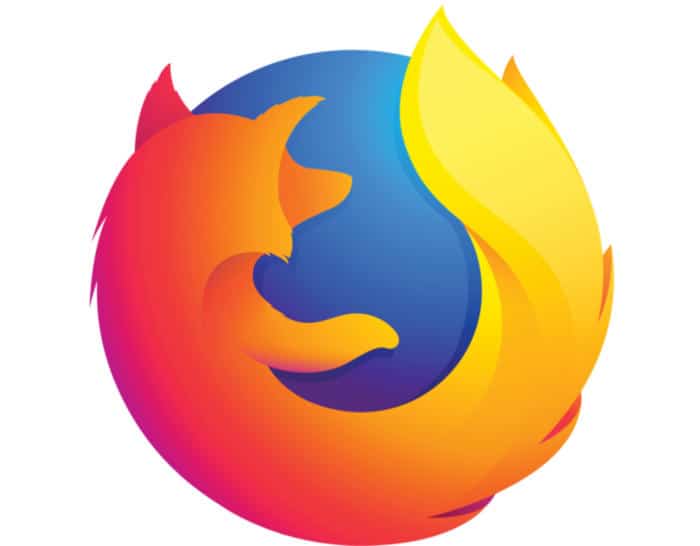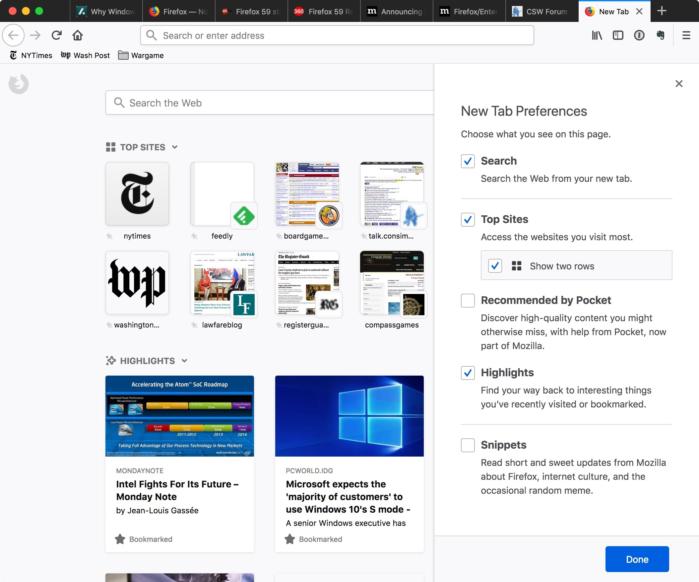
With Firefox 59, Mozilla is now inviting corporate IT admins to participate in an invitation-only beta of Firefox Quantum for Enterprise.
Mozilla on Tuesday released Firefox 59 for Windows, macOS and Linux, continuing the trend of pushing performance improvements begun late last year.
Firefox, which can be downloaded from here, updates in the background, so most users need only relaunch the browser to get the latest version. To manually update, pull up the menu under the three horizontal bars at the upper right, then click the help icon (the question mark within a circle). Choose “About Firefox.” The resulting page shows that the browser is either up to date or details the updating process.
Mozilla usually updates Firefox every six to eight weeks; the last time it upgraded the browser, to version 58, was Jan. 23, or seven weeks ago.
Pages load faster after cache changes
Firefox 59 stayed on Mozilla’s 2017 theme train – more speed – that debuted with November’s launch of the first named edition, tagged as “Quantum,” with claims of faster load times for the content on the browser’s Home page. That content ranges from a series of frequently-visited websites and recommendations from the user-driven Pocket URL saver to examples of pages the user recently bookmarked.
Mozilla also switched on something called “Race Cache with Network” (RCWN), technology that alters the standard method of caching pages to memory that have been rendered previously. Caching, one of the most basic techniques to speed up the display of web pages in a browser, normally saves those pages to computer memory or the local disk drive.
RCWN, however, adds a network cache – in other words, off-site storage of the page – to the mix, then pits that against a local cache in a race to see which source delivers first. (Many ISPs, or Internet service providers, cache the most popular websites on multiple servers, placed throughout its area of service, to reduce the time it takes for customers to grab content.)
“When we detect that disk I/O may be slow, we send a network request in parallel, and we use the first response that comes back,” wrote Valentin Gosu, a Mozilla engineer, in a 2017 post to a developers’ discussion thread. “For users with slow-spinning disks and a low-latency network, the result would be faster [page] loads.”
Finally, the “Off-Main-Thread painting” that Mozilla added to Firefox 58 for Windows in January has made it to macOS this iteration. Off-Main-Thread shifts some of the page rendering work – executing the graphics draw commands and thus generating the pixels to be put on the display – to a processor thread all its own. By reducing the main thread’s workload, it’s more likely that Firefox will be able to compose pages in time to keep high frame rate jobs from skipping frames.
More new tab page customization options
Firefox 59 also introduced additional customization choices for the Home page, which doubles as the new tab page (what appears when creating a new tab through, say, pressing Ctrl-T in Windows or Command-T in macOS). The “Top Sites” thumbnails of the most-frequently visited URLs can now be dragged and dropped to rearrange the small images.

Other elements in the new tab page may also be personalized to show more than a single line of top sites, or to eliminate, for example, the Pocket or Highlight sections entirely.
Elsewhere, Firefox’s preferences now include opt-in settings that will block all future requests to turn on in-browser notifications, switch on the device’s camera or microphone, or enable location detection. While all of those features have been, and are, used in reasonable fashion by legitimate websites, less courteous – or simply scammy – URLs have poisoned the well by demanding those permissions without good reason.
Trusted sites can be allowed access or individual websites blocked through a combination blacklist/whitelist.
Testing starts for Quantum Enterprise
As Mozilla delivered Firefox 59, it also began taking requests from company IT administrators to participate in an invitation-only beta of Firefox Quantum for Enterprise.
While the enterprise browser will be identical to that issued to everyone else, Mozilla intends to provide a policy engine, one compatible with Windows Group Policy – the de facto standard for software administration – with the browser. That will be a first for the open-source developer.
“Firefox 60 will include a policy engine that increases customization possibilities and integration into existing management systems,” Mozilla said in January when it announced the plan.
Although the initial release will support a “limited number” of policies, Mozilla said it would expand that list based on enterprise user feedback. That feedback is what the company is after now, in fact: The beta is intended to gather impressions and make changes before May, when Firefox 60 and the policy engine, are slated to ship.
Administrators can sign up for the beta here.
For more information on the policy engine, admins should steer for the introductory instructions on this page.
Mozilla also patched 18 security vulnerabilities in the just-released version, two of which were marked “Critical,” the company’s most serious threat ranking.
The next edition, Firefox 60, should reach users May 9, according to the browser’s release calendar.